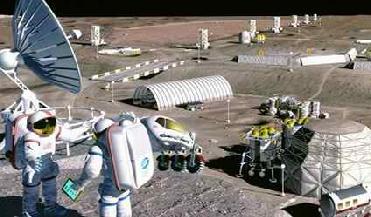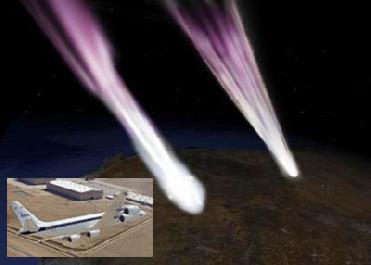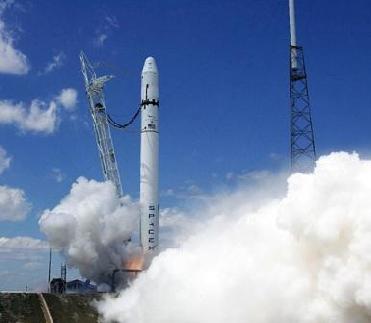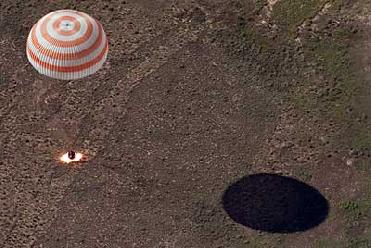
Artist's concept of lunar mining. NASA
MOSCOW (BNS): For future exploration of the Moon and Mars, Russia�s Federal Space Agency Roscosmos will propose the construction of a low-orbit space station to the government.
Addressing a news conference here, Roscosmos director of manned flight programmes, Alexei Krasnov said that they would soon be proposing to the government the construction of a low-orbit complex, which would serve as a foundation for the implementation firstly of the lunar programme and later the Mars.
Russian news agency RIA Novosti quoted Krasnov as saying that Russia and other countries were looking at the Moon in a mid-term perspective. �One would not only want to go there and come back, but also establish a lunar base, which would allow one to start exploring Mars in the future. These are our intentions also, and we are working hard to ensure that these plans get adequate financial and legislative support from the government,� the official was quoted as saying.
Russia, a pioneer in robotic lunar research, abandoned its lunar exploration programme with the end of the Moon race in the mid-1970s, but the idea of exploring the Earth's natural satellite rekindled only recently. They felt like developing the Moon�s resources and to use it as a stepping-stone for further space exploration.
Roscosmos had earlier said that its first unmanned flight to the Moon would include a lunar orbiter to fire 12 penetrators across diverse regions to create a seismic network. These will be used to research the origins of the Moon.
�Roscosmos would propose extending the use of the International Space Station (ISS) until 2020,� Krasnov said. �We are considering the extension of ISS service life at least until 2020, but this decision must be adopted by the governments of all 15 countries participating in the project,� RIA Novosti quoted Krasnov as saying.
The orbital assembly of the ISS began with the launch of the US-funded and Russian-built Zarya module from Kazakhstan on November 20, 1998. Zarya, which means �dawn,� was the ISS�s first component. The project has taken longer than the planned five years, and as of July 2008 the station was approximately 76% complete, the agency said.













The Indian Air Force, in its flight trials evaluation report submitted before the Defence Ministry l..
view articleAn insight into the Medium Multi-Role Combat Aircraft competition...
view articleSky enthusiasts can now spot the International Space Station (ISS) commanded by Indian-American astr..
view article